William Eggleston
(American, born 1939)
Biography
William Eggleston is one of the most influential photographers of the latter half of the 20th century. His portraits and landscapes of the American South reframed the history of the medium and its relationship to color photography. “I had the attitude that I would work with this present-day material and do the best I could to describe it with photography,” Eggleston explained. “Not intending to make any particular comment about whether it was good or bad or whether I liked it or not. It was just there, and I was interested in it.” Born on July 27, 1939 in Memphis, TN, Eggleston’s initial style was influenced by Henri Cartier-Bresson, Robert Frank, and Walker Evans. He attended Vanderbilt University, Delta State College, and the University of Mississippi, but never graduated. The artist’s experiments with color film during the 1960s challenged the conventions of photography, since at the time, dye-transfer photography was considered beneath serious photographers, relegated to commercial prints and tourist snapshots. In 1976, the curator John Szarkowski mounted the exhibition “Eggleston’s Guide” at The Museum of Modern Art, a solo show of the artist’s color photographs which was famously condemned by the traditional photographer Ansel Adams. Since his debut exhibition, Eggleston has gone on to produce a number of important photobooks, including The Democratic Forest (1989), which have in turn influenced a younger generation of photographs, including Martin Parr and Stephen Shore. Eggleston currently lives and works in Memphis, TN. His works are held in the J. Paul Getty Museum in Los Angeles, the National Gallery of Art in Washington, D.C., the Victoria and Albert Museum in London, and the Whitney Museum of American Art in New York, among others.
William Eggleston
(1,407 results)
.jpg)
.jpg)
.jpg)
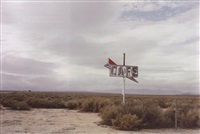
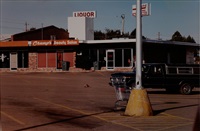
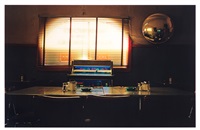
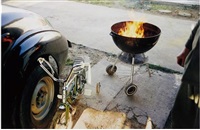

.jpg)
.jpg)
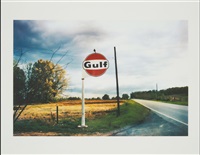

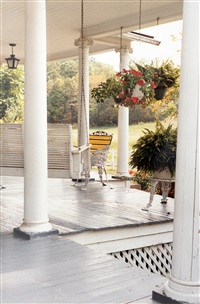
.jpg)

.jpg)
![Sumner, Mississippi [young man in chair], 1970 Sumner, Mississippi [young man in chair], 1970](http://www.artnet.com/WebServices/images/ll2236360llgnme52CfDrCWQFHPKAD/william-eggleston-sumner,-mississippi-[young-man-in-chair].jpg)
.jpg)
.jpg)
.jpg)
.jpg)
.jpg)


